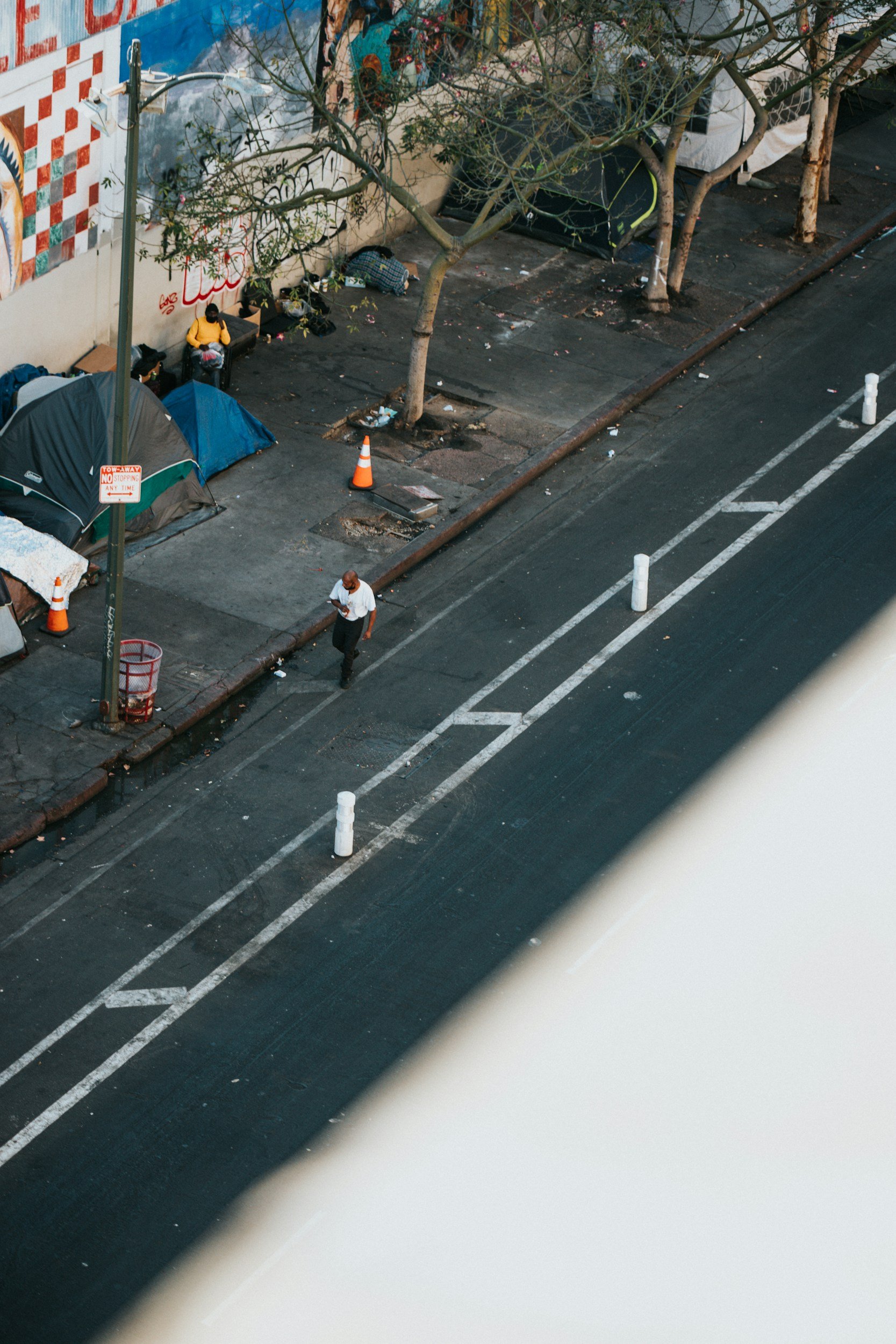
A Tale of Two Crises
At the onset of the COVID-19 pandemic, the situation of people experiencing homelessness and what communities could do to protect this vulnerable subpopulation emerged as an area of particular concern. People experiencing homelessness are both less likely to be able to self-isolate or quarantine and more likely to suffer a severe case of COVID-19 due to underlying health conditions. In addition, local mitigation efforts in response to the pandemic may have negative, unintended consequences for the population experiencing homelessness.

Working in the crisis
While the COVID-19 pandemic was, first and foremost, a health crisis, it presented a profound challenge to local economies around the world. Day-to-day business was suspended, and employers were forced to adapt to rapidly evolving working conditions. An external, global pressure issued an abrupt shock to the economic system of communities. While certainly profound and currently the first-to-mind example of economic shock, it is just one of many global pressures that local economies have had to contend with. In the face of global forces, how do local economic practitioners react and empower their communities to shape their own economic destiny?

A Feminist Critical Analysis of Public Toilets and Gender
There is a distinct lack of good quality public toilets in public spaces in cities across North America, Europe, Australia, and New Zealand. With increasing numbers of unhoused people without access to private facilities, this is a growing concern. It is also an issue for anyone who wants to use public spaces, as everyone eventually needs a dignified place to go. Furthermore, the scarcity of quality public toilets disproportionately affects women, trans, and gender-nonconforming individuals, which impacts their mobility, safety, and health.

Disasters and Economic Shocks Virtual Issue
In advance of the research that will soon be coming forth about the varied impacts of COVID-19 on our lives, UAR Co-Editor Peter Burns has identified several UAR articles that engage issues he thinks will receive a lot of attention from urban scholars. This “virtual” issue on Disasters and Economic Shocks highlights previously published articles on emergency management networks, inequities in public services, public health, immigration policy, and city responses to economic shocks.

Citizen Partisanship, Local Government, and Environmental Policy Implementation
Early on in the Trump administration, it was clear that the role of the federal government in environmental protection would be lessened, with then Environmental Protection Agency administrator, Scott Pruitt, suggesting that the Trump administration would focus on “cooperative federalism,” emphasizing the role of states in environmental regulation. The developments at the federal level have led scholars and journalists alike to question how this prioritization of state administration in environmental policy will impact implementation.